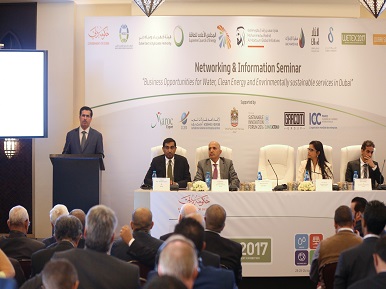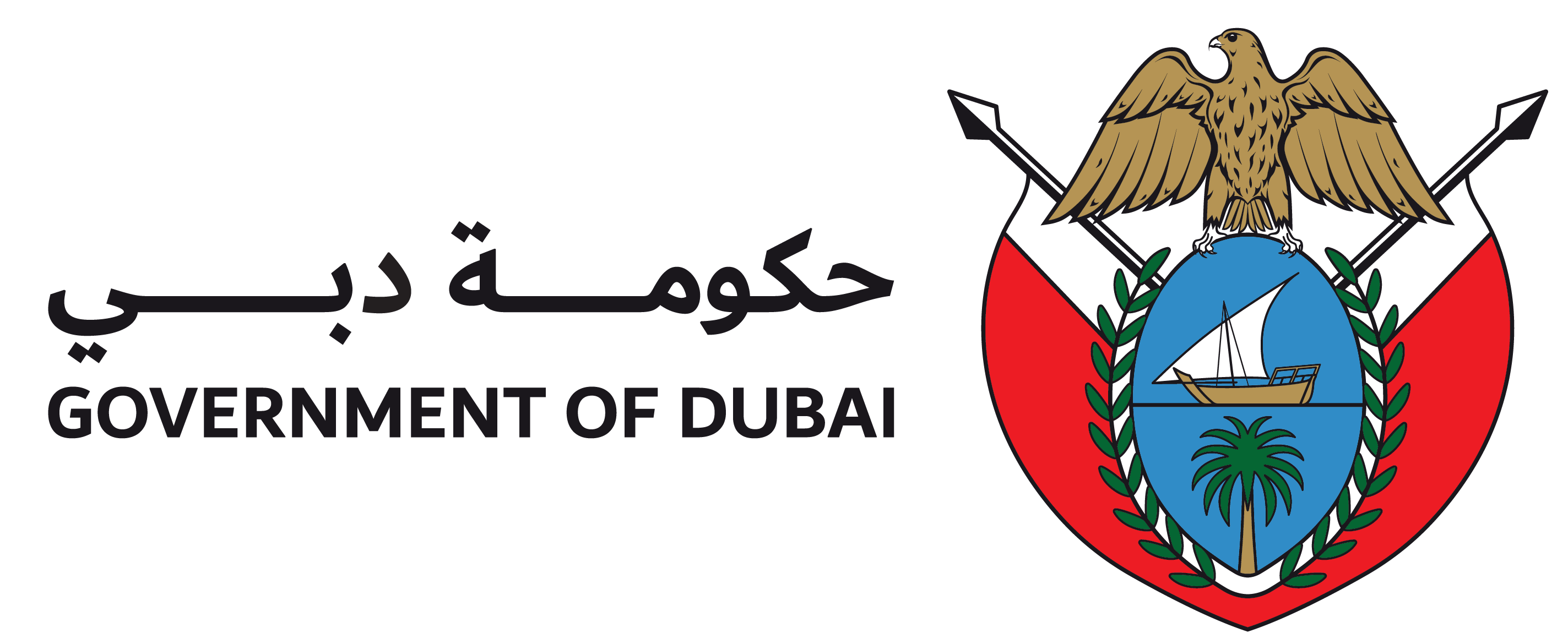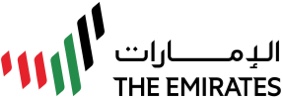Dubai Supreme Council of Energy and DEWA conclude successful participation in COP22

The Dubai Supreme Council of Energy’s and Dubai Electricity and Water Authority’s (DEWA’s) headed by HE Saeed Mohammed Al Tayer, Vice Chairman of the Dubai Supreme Council of Energy and MD & CEO of DEWA, has successfully concluded its participation in the 22nd Conference of the Parties to the United Nations Framework Convention on Climate Change (COP 22). The event is happening in Marrakech, Morocco, from 7-18 November 2016.
The Supreme Council of Energy’s delegation reviewed the Emirate’s energy sector. Dubai has been at the forefront in adopting international green-economy strategies, sustainability, and limiting the effects of climate change.
The delegation included HE Ahmed Buti Al Muhairbi, Secretary General of the Supreme Council of Energy, Waleed Salman, Chairman of the Dubai Carbon Centre of Excellence (Dubai Carbon) and Executive Vice President of Strategy and Business Development at DEWA, Dr. Yousef Al Akraf, Executive Vice President of Business Support and Human Resources at DEWA, Khawla Al Mehairi, Vice President of Marketing and Corporate Communications at DEWA, and Mohammed Abdulkarim Al Shamsi, Acting Executive Director of the UAE Water Aid Foundation.
DEWA also highlighted its experience in motivating and preparing young Emiratis and adopting positive innovative ideas to tackle climate change. DEWA reviewed its initiatives at a Youth Circle organised by the Ministry of Climate Change and the Environment at COP22, and was attended by HE Dr. Thani Al Zeyoudi, Minister for Climate Change and the Environment in the UAE.
“DEWA is committed to employing and engaging young people to achieve sustainable development goals in support of the directives of His Highness Sheikh Mohammed bin Rashid Al Maktoum, Vice President and Prime Minister of the UAE and Ruler of Dubai, to achieve the UAE Vision 2021, to make the UAE one of the best countries in the world by 2021. We do this by equipping and training young people to be the next generation of experts and leaders in research and development, and solar and clean energy projects and initiatives. They are the ones who will implement the UAE’s ambitious strategies and plans to strengthen the position of our nation as a global hub for clean energy and for energy efficiency,” said Al Tayer.
At COP22, DEWA organised a meeting with leading Moroccan companies working in energy and sustainability. Al Tayer met with over 100 companies. The meeting was attended by Ibrahim Thiaw, Deputy Executive Director for the United Nations Environment Programme (UNEP) and Assistant Secretary-General of the United Nations, and Zahra Maafiri, Managing Director of Maroc Export (Moroccan Centre for Export Promotion).
During his speech, Al Tayer noted the strong ties between the UAE and Morocco, and that both the UAE and Morocco share the same strategy of investing in alternative energy sources. Al Tayer added that this relationship is a model for constructive relations between countries around the world.
“The relationship between the two countries is constantly developing, thus contributing to the common interests of the two countries. In 2014, non-oil trade between the UAE and Morocco was USD 526 million and in 2015, the two countries signed 21 cooperation agreements in different areas,” said Al Tayer.
“I am pleased to be here in Marrakesh today, to build closer ties between the UAE and the Kingdom of Morocco. These ties were established by the late Sheikh Zayed bin Sultan Al Nahyan, and the late King Hassan II. Today, UAE-Moroccan relations have grown much stronger, as a result of the directives of His Highness Sheikh Khalifa bin Zayed Al Nahyan, President of the UAE, His Majesty King Mohammed VI, King of Morocco, and His Highness Sheikh Mohammed bin Rashid Al Maktoum, Vice President and Prime Minister of the UAE and Ruler of Dubai,” added Al Tayer.
“We are working to achieve the UAE Vision 2021, to become one of the best countries in the world by 2021. This in turn, strengthens the UAE’s global competitiveness, especially in renewable energy and green economy technologies and products. Dubai has a comprehensive vision for a sustainable future, which is pivotal to the success of building a green economy. There are several strategies launched by our wise leadership to create an attractive environment for investment. The Dubai Plan 2021 aims to make the Emirate the most business-friendly city and preferred investment destination in the world.”
“The National Innovation Strategy launched by His Highness Sheikh Mohammed bin Rashid Al Maktoum, aims to make the UAE one of the most innovative countries in the world. The Dubai Innovation Strategy, approved by His Highness Sheikh Hamdan bin Mohammed bin Rashid Al Maktoum, Crown Prince of Dubai and Chairman of the Executive Council of Dubai, and Chairman of the Board of Trustees of the Dubai Future Foundation, aims to transform Dubai into the most innovative city in the world. The Dubai Future Accelerators initiative will create an integrated global platform to shape the future of Dubai’s strategic sectors, build economic value by accelerating businesses, embracing futuristic technologiical solutions and attract the best minds from around the world to experience and apply their innovations in Dubai. The Demand Side Management Strategy aims to reduce energy and water demand by 30% by 2030. The Carbon Abatement Strategy aims to reduce carbon emissions by 16% by 2021. The Smart Dubai initiative, launched by His Highness Sheikh Mohammed bin Rashid Al Maktoum, aims to transform Dubai into the smartest and happiest city in the world. The Dubai Clean Energy Strategy 2050 aims to diversify the energy mix so clean energy will generate 7% of Dubai’s total power output by 2020, 25% by 2030 and 75% by 2050. Dubai focuses on energy security and sustainability,” added Al Tayer.
Al Tayer noted that the Dubai Clean Energy Strategy 2050 consists of five main pillars: infrastructure, legislation, funding, building capacities and skills, and an environmentally-friendly energy mix. The infrastructure pillar includes initiatives such as the Mohammed bin Rashid Al Maktoum Solar Park, which is the largest single-site solar park in the world. It will produce 5,000 megawatts by 2030, with a total investment of USD 13.6 billion (AED 50 billion). The solar park will save approximately 6.5 million tonnes of carbon emissions annually.
The infrastructure pillar also includes the establishment of a free zone called Dubai Green Zone, dedicated to attracting Research and Development (R&D) centres and emerging companies in clean energy. The second pillar focuses on the establishment of a legislative structure supporting clean energy policies through the Shams Dubai initiative, to support the Dubai Clean Energy Strategy. For funding through the Dubai Green Fund, the third pillar covers financing solutions for investment in R&D on clean energy and its applications. This includes the establishment of the Dubai Green Fund, which is worth AED 100 billion. The fourth pillar aims to develop skills through global training programmes in clean energy, in cooperation with international organisations and institutes, as well as R&D centres. The fifth pillar is focused on creating an environmentally-friendly energy mix, based on the agreed targets. All these ambitious development strategies and plans aim to improve the economy and attract investment into development projects that provide opportunities in support of the new growth cycle of Dubai. DEWA’s five-year investment to achieve these strategies is worth AED 65 billion.
“To realise DEWA’s vision to become a sustainable innovative world-class utility, and in line with our 2021 strategy that supports the Dubai Plan 2021, we are working closely with our partners to implement major pioneering electricity and water infrastructure projects. This will ensure economic, environmental and social sustainability, and make Dubai the smartest, happiest, and most sustainable city in the world. DEWA promotes partnerships between the public and private sectors. We adopt the Independent Power Producer (IPP) model in our strategic projects, to enable investors to establish long-term partnerships that are mutually beneficial. Through this model, Dubai previously set a world record in the cost of solar energy after it received a globally-competitive price of USD 2.99 cents per kilowatt hour (kW/h), for the 800MW third phase of the Mohammed bin Rashid Al Maktoum Solar Park. This has helped to reduce the costs of such projects globally, amidst increasing competition, especially for the projects that come after DEWA’s announcement of this price,” said Al Tayer.
“Based on the IPP model, DEWA also received the lowest bid at USD 4.5 cents per kilowatt hour for the 2,400MW Hassyan power plant. The plant is the first-of-its-kind in the region and is fully-compliant with set international standards. We are also working on expanding the M-Station power production and water desalination plant. The project contract is worth AED 1.47 billion (USD 400 million) and will be completed in 2018. These future projects and programmes are promising opportunities for investors in the green energy sector.”
“DEWA has allocated over AED 2.6 billion to support electricity, water, and renewable energy infrastructure projects, to host the best World Expo in Dubai in 2020, with a focus on renewable energy sources. The World Expo will be connected to the Mohammed bin Rashid Al Maktoum Solar Park, which will provide it with 200MW of power. This supports the World Expo’s theme of ‘Connecting Minds, Creating the Future’ and its three sub themes of Sustainability, Mobility, and Opportunity. DEWA is building three 132/11 kilovolt (kV) substations with 45 kilometres (km) of high-voltage (132kV) cables. The substations has been named Sustainability, Mobility, and Opportunity. The total cost of the electricity projects will be AED 420 million. DEWA is also building water transmission networks with pipelines that are 600 and 1,200 mm in diameter, pumping stations and distribution networks. With a planned budget of AED 515 million, these projects will increase water-flow rates and ensure an adequate water supply to meet increasing demands,” added Al Tayer.
Al Tayer invited Moroccan companies to participate in the Water, Energy, Technology, and Environment Exhibition (WETEX). “For the last 18 years, DEWA has organised WETEX, under the directives of His Highness Sheikh Mohammed bin Rashid Al Maktoum, and under the patronage of His Highness Sheikh Hamdan bin Rashid Al Maktoum, Deputy Ruler of Dubai, Minister of Finance, and President of DEWA. WETEX has become a leading international platform, bringing together 1,900 exhibitors and over 23,000 visitors who represent the biggest international companies and organisations, and experts in energy, water and the environment from 46 countries.
“WETEX facilitates the exchange of experiences and best practices, while showing the latest developments and technologies. The event coincides with the World Green Economy Summit (WGES). Over three years, the summit has attracted prominent experts in green energy, sustainability, and climate change. The summit has succeeded in consolidating Dubai’s leading position globally by attracting over 40 supporting partners and sponsors. It has gathered over 80 world leaders and representatives of public and private organisations and financial institutions, to exchange ideas and knowledge. The summit, which was attended by over 2,500 people, resulted in important recommendations, including the third Dubai Declaration, which emphasises the continuous efforts to create an even smarter, greener, and happier Dubai, and make it a global hub for green economy. The Dubai Declaration summarises the achievements made during last year, and commitments for the future, focusing on three main areas: making Dubai a global hub for green economy, developing international green partnerships, and green finance,” said Al Tayer.
Al Tayer highlighted the World Green Economy Organisation (WGEO), which was launched by His Highness Sheikh Mohammed bin Rashid Al Maktoum at the World Green Economy Summit 2016, with the support of the Government of Dubai, and in partnership with the United Nations Development Programme (UNDP). WGEO, which will be based in Dubai, aims to take a pioneering role to promote green economy through dialogue, partnerships, and exchanging expertise with countries, the public and private sectors, organisations, UN agencies, financial institutions, and civil society to achieve the green economy objectives. The organisation will be a platform for developing new solutions for climate change, sustainable energy, and other water-related and environmental challenges around the world.
“As part of Dubai’s efforts to become the smartest and happiest city in the world, and to achieve the Smart Dubai initiative launched by His Highness Sheikh Mohammed bin Rashid Al Maktoum, DEWA launched a number of leading initiatives. These include Shams Dubai, which encourages building owners to install photovoltaic panels on rooftops to generate solar power and connect it to DEWA’s grid. We have implemented many projects through this initiative. The second initiative is the Smart Applications and Meters, and the third is the Green Charger to establish the infrastructure for electric-vehicle charging stations. To date, DEWA has established 100 charging stations across Dubai. The smart grid supports Dubai’s target to reduce energy consumption by 30% by 2030. DEWA’s smart grid strategy contains 11 programmes with a total investment of USD 2 billion up to 2020,” added Al Tayer.
“Our strategy involves moving from a carbon-intensive economy to a greener one, through the Dubai Green Fund, which is worth USD 27 billion, and encourages green investment and green growth. DEWA established Etihad Energy Services Company (Etihad ESCO) to boost energy performance contracts by providing financial organisations the opportunity to invest in energy-efficient projects. Financial institutions can become active partners in the sustainable development vision of Dubai, with plans to retrofit over 30,000 buildings to make them energy-efficient in the first phase of this project along with our Demand Side Management programmes at a cost of AED 30 billion bringing returns of AED 82 billion and a net profit of AED 52 billion, as we place great importance on environmental issues that contribute to the sustainable development of the UAE. We place great importance on environmental issues that contribute to the sustainable development of the UAE. Through the Emirates Central Cooling Systems Corporation (Empower), the world’s largest district-cooling services provider, we highlight the benefits of district cooling for the public and private sectors around the world, as there is an urgent need to consolidate efforts to address the challenges facing the energy sector and create new business opportunities in renewable and clean energy. The UAE Water Aid Foundation (Suqia) was launched by HH Sheikh Mohammed bin Rashid Al Maktoum in 2015, to help millions of underprivileged people, who are in desperate need of drinkable water around the world.”
“We always look forward to adopting the best electricity and water technologies and promoting partnerships with the private sector around the world. We are sure that such partnerships with international companies are important for both parties as DEWA gets the best modern technologies, while those companies have strategic opportunities to continue enhancing their technologies. We are confident that Moroccan companies can play a major role in the energy, electricity, water, and green building sectors in the UAE, and in Dubai in particular,” concluded Al Tayer.
Thiaw commended Dubai’s achievements in water and clean energy and the solar power projects that have contributed to its social and economic development.
Al Muhairbi highlighted the Supreme Council’s strategy to achieve an immediate reduction in energy and water use. It has resorted to a balanced approach to implement renewable energy projects within developed regulatory frameworks and compatible technologies.
Salman talked about the Dubai Clean Energy Strategy 2050 and the Mohammed bin Rashid Al Maktoum Solar Park. He also highlighted the Innovation Centre, the park’s Research & Development (R&D) Centre, the Hassyan power plant based on the IPP model, and DEWA’s smart initiatives, including Shams Dubai, to install photovoltaic panels on rooftops to produce solar energy, smart grids, energy demand side management initiatives, and a number of other projects and initiatives.
Al Akraf gave a presentation about the Water, Energy, Technology, and Environment Exhibition (WETEX), highlighting the Dubai Solar Show that DEWA organises. The Solar Show is the largest exhibition of its kind in the region. Together with WETEX 2017, they make a single integrated platform that covers all forms of clean energy and highlights the importance of solar energy and its key role in providing electricity and supporting sustainable development, especially in the region. The Dubai Solar Show presents the latest technologies in this area. It bring together experts, manufacturers, and stakeholders to discuss solar energy solutions, requirements, and initiatives. It also highlights how technology is making it easier to build solar energy facilities around the world.
Al Shamsi talked about Suqia’s work under the umbrella of the Mohammed bin Rashid Al Maktoum Global Initiatives, and the USD 1 million Mohammed bin Rashid Al Maktoum Global Water Award. The award supports the UAE’s vision to build a knowledge-based economy, with a focus on technology. It encourages leading corporations, research centres, institutions and innovators from around the world to compete to find sustainable and innovative solar-powered solutions to the problem of water scarcity.
Ali Al Jassim, Acting CEO of Etihad ESCO, briefed attendees on the energy demand-side management strategy, and the projects to improve energy efficiency in buildings and retrofit over 30,000 buildings in Dubai. Ivano Iannelli, CEO of Dubai Carbon, talked about the Centre’s achievements and projects.


